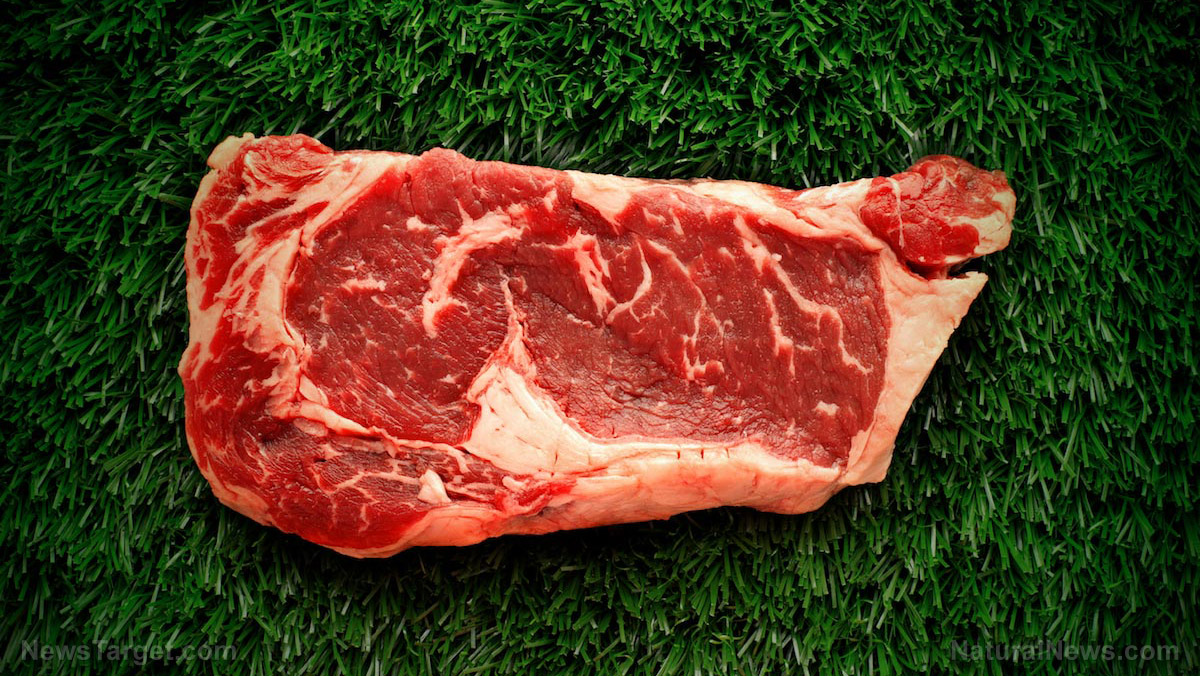 Parler
Parler Gab
Gab
Moderation is key when it comes to meat consumption
Norrina Allen, senior study author and associate professor of preventive medicine at Northwestern University Feinberg School of Medicine, explained that the difference might seem insignificant, but you can reap health benefits by trying to limit your consumption of red meat and processed meat like bologna, pepperoni and deli meats. Allen also warned that frequent consumption of red meat is associated with other health problems like cancer. So what should you eat instead of red and processed meat? Linda Van Horn, study co-author and professor of preventive medicine at Feinberg, suggests replacing meat with fish, seafood and plant-based sources of protein like nuts and legumes. However, these foods are often under-consumed in the United States. Victor Zhong, the lead study author and assistant professor of nutritional sciences at Cornell, emphasizes the importance of making these dietary changes, noting that modifying your consumption of animal protein can help lower your risk of cardiovascular disease and premature death.
Tips to reduce your meat intake
Here are some tips to help you reduce your intake of red and processed meat: Start with a meat-free breakfast Breakfast is often the easiest to make meatless. You can even start your day with a completely plant-based breakfast to make it easier to stick to a meat-free day. Start with steel-cut oats paired with fruits, nuts and non-dairy milk or make whole-grain pancakes topped with your favorite nut butter. You can also prepare a veggie breakfast burrito or serve scrambled tofu with mushrooms and greens. Since you start the day with a meatless meal, it might be easier to do the same thing for lunch and dinner. Start with one meatless day a week If you eat a lot of meat, take things slow. Ease yourself into a healthier diet by going meatless for one day each week. The next week, add another meatless day. As you get used to not eating meat, you'll eventually get used to eating more whole foods in a week. This slow pace isn't as stressful because you're not overwhelmed by trying to figure out every meal in one go. It's also easier on your digestive system. When you consume more fruits, veggies and beans, you eat more fiber. Dietary fiber offers many benefits for your digestive tract, but it may cause uncomfortable side effects like bloating and gas if you overdo it. Drink enough water so you stay hydrated on your new diet. Meal prep and plan for leftovers If you're struggling with your plant-based menu, plan ahead. Experiment with ingredients that include a source of protein, fiber-rich carbs and healthy fat. Try delicious recipes like avocado on whole-grain toast with sliced tomato for breakfast or lentil and butternut squash tacos topped with crumbled feta for lunch. End your veggie-filled day with whole wheat noodles, kale-walnut pesto and baked tofu cubes. Make the most of your meal prepping by making extras for the next day and the rest of the week if you can. Having leftovers can help save time and effort so you don't end up stressing over what to eat next. Replace meat with tofu or tempeh Tofu and tempeh are two of the most versatile alternatives to meat and poultry. While some people dismiss them for being bland, you just need the right recipe to give these ingredients a flavor boost. Use extra-firm tofu, which has a meaty texture, and flavorful seasonings like citrus, fresh herbs, spices and soy sauce. Don't eat tofu plain; instead, bake marinated sliced tofu in the oven and add it to sandwiches, salads or on top of grain bowls. To make tofu crispy without frying, toss cubed tofu in a tablespoon of cornstarch before baking or sauteing. If you have tempeh, crumble it up as an alternative to ground meat or poultry. Use your favorite seasonings and saute until golden and crisp, or stir it into slow-cooked chili or stews so it can soak up all the flavored liquids. Get motivated by pairing up with a friend who also wants to eat less meat It can be disheartening to do this alone, but pairing up with a friend who also wants to improve their eating habits can make things easier. With a friend on the same journey to healthier eating habits, you can give each other advice like how to navigate restaurant menus. Limit your meat intake and eat more fruits and veggies to boost your heart health. Sources: ScienceDaily.com DailyMail.co.uk Self.comThe end of meat? Dutch “green” policies force dairy farmer to cull 95% of his herd
By Ethan Huff // Share
Deborah Birx hid covid info from Trump, altered CDC guidelines without approval
By Ethan Huff // Share
Germany’s birth rate improbably falls by 11% in the first quarter of 2022
By Lance D Johnson // Share
By Mary Villareal // Share
Common signs and symptoms of magnesium deficiency
By Olivia Cook // Share
Governments continue to obscure COVID-19 vaccine data amid rising concerns over excess deaths
By patricklewis // Share
Tech giant Microsoft backs EXTINCTION with its support of carbon capture programs
By ramontomeydw // Share
Germany to resume arms exports to Israel despite repeated ceasefire violations
By isabelle // Share










